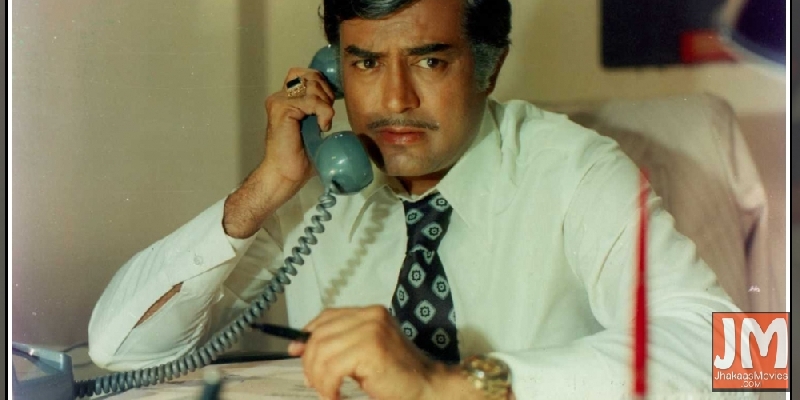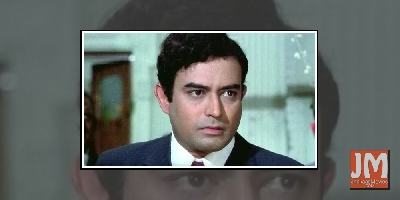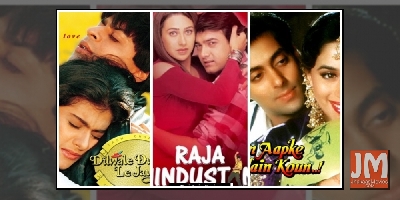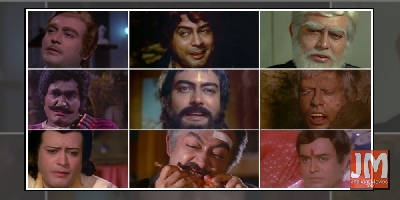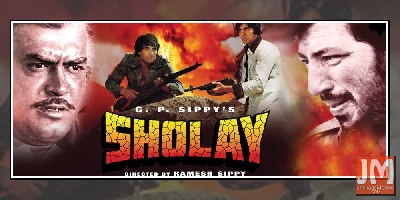Birth Date: 09 Jul, 1938,
Age (47)
Occupation : Actor, Producer
Filmfare Awards : 3
National Awards : 2
Place of Birth : Surat
Date of Death : 06 Nov, 1985
Sanjeev Kumar was an Indian film actor. He won several major awards including two National Film Awards for Best Actor for his performances in the movies Dastak (1971) and Koshish (1973). He acted in genres ranging from romantic dramas to thrillers. Kumar did not mind playing roles that were non-glamorous, such as characters well beyond his age. Movies such as Arjun Pandit, Sholay and Trishul, along with the remakes of Tamil films into Hindi such as Khilona, Yehi Hai Zindagi, Naya Din Nai Raat, Devata, Itni Si Baat and Ram Tere Kitne Naam exemplify his talents. He also did suspense-thriller films such as Qatl, Shikar, Uljhan and Trishna. Kumar also proved his ability to do comedy in films such as Manchali, Pati Patni aur Woh, Angoor, Biwi O Biwi and Hero. He is well remembered for his versatility and genuine portrayal of his characters. His double role in the film Angoor was listed among the 25 best acting performances of Indian cinema by Forbes India on the occasion of celebrating 100 years of Indian Cinema.
In 1970, the movie Khilona, which was remake of Tamil film Engerindho Vandhaal, brought Kumar national recognition. In 1972, he played in an Indo-Iranian film, Subah aur Shaam. This was when director Gulzar first spotted him. Later he cast Kumar in the roles of older men in 4 films Parichay, Koshish (1973), Aandhi (1975) and Mausam (1975). Gulzar casted Kumar in role of young man in the films Angoor (1981) and Namkeen (1982). Kumar won the BFJA Awards for Best Actor (Hindi) for his exemplary portrayal of a deaf and mute person in Koshish, in which the female lead was played by Jaya Bhaduri, who acted as his deaf and mute wife and was herself nominated for Best Actor award by Filmfare for the same role. He went on to star in the box office hits Seeta Aur Geeta (1972), Manchali (1973) and Aap Ki Kasam (1974). In 1973, he made a guest appearance during a song in a Tamil movie, Bharatha Vilas (1973). He performed in nine movies directed by Gulzar. Hrishikesh Mukherjee directed him in Arjun Pandit, for which he won the Filmfare Best Actor Award.
Sanjeev Kumar's excellent comic timing entertained audiences in films such as Seeta Aur Geeta, Biwi O Biwi (1981), Pati, Patni Aur Woh, Angoor (1982) and Hero (1983).
His performances in films such as Charitraheen, Angaare, Grihapravesh, Chehre Pe Chehra, Sawaal and Yaadgaar, though they became-box office flops, were appreciated by critics and during their subsequent screening on television. Kumar always demonstrated a willingness to take on unconventional roles that challenged him as an actor. His role as Mirza Sajjad Ali,[6] a chess-obsessed Lucknowi (citizen of Lucknow), in Satyajit Ray's classic Shatranj Ke Khilari (1977) exemplified that aspect. Perhaps his best remembered roles were in the blockbuster films Sholay (1975) and Trishul (1978). His portrayal of the character Thakur, from Sholay, released in August 1975 was one of his stellar performances. In Naya Din Nayi Raat (1974), Sanjeev Kumar reprised the nine-role epic performance by Sivaji Ganesan in Navarathri (Tamil; 1964), which was also previously reprised by Akkineni Nageswara Rao in Navarathri (Telugu; 1966). This film enhanced his status and reputation as a serious player in Bollywood. He stood his ground against leading superstars such as Rajesh Khanna in Bandhan and Aap Ki Kasam; Amitabh Bachchan and Shashi Kapoor in the Yash Chopra multi-star cast film Trishul (1978) and Dilip Kumar in the film 'Sangharsh' and Vidhaata (1982).

 Aan Tiwari honoured with Best Child Actor award for Baal Shiv
Aan Tiwari honoured with Best Child Actor award for Baal Shiv